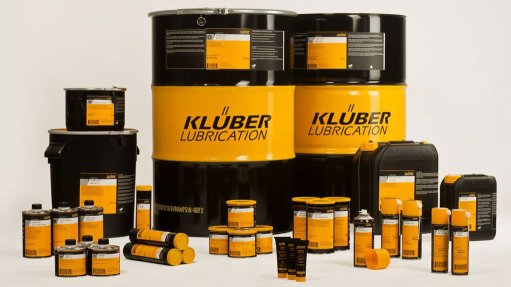Vale seeks go-ahead to build iron-ore mine by biodiversity haven
Vale is seeking to boost iron-ore output by reviving efforts to develop a controversial mine in a mountainous region of southeastern Brazil known for its lush forests and endangered wildlife.
The world’s No. 2 iron-ore supplier is awaiting feedback from environmental authorities after holding public hearings in late May for its Apolo project that had been shelved for years. Vale’s renewed efforts to revive its $1.3-billion plan has already fueled a social media campaign by locals and environmentalists to stop the development, located in a rich biodiverse area next to a national park.
Apolo is Vale’s only new mining project planned for Minas Gerais state and is seen as critical for reviving the company’s iron ore capacity in the region. The metals producer aims to churn out 14 million tons of high-grade ore a year from Apolo. Vale expects to get an installation permit by early 2028 and start operations to produce the steelmaking ingredient two years later.
Vale’s push and the local resistance is another example of the conflict between resource companies, local communities and the environment, where competing interests trigger tensions that can reverberate to the highest levels of government. Mining companies ranging from giants such as Rio Tinto Group and Barrick Gold to developers including Northern Dynasty Minerals and Gabriel Resources have seen projects delayed or scuttled due to environmental concerns.
The project is in a region where Vale has its oldest mines and not far from the locations of two deadly mining disasters — in 2015 and 2019 — that killed 291 people, damaged the environment and undercut the Rio de Janeiro-based company’s position in the global iron-ore market.
Apolo is in an area known as Serra do Gandarela, a mountainous haven with forests, endangered species and crystal-clear rivers that provide water to one of Brazil’s biggest cities, Belo Horizonte. Most of the region became a protected national park a decade ago, though Vale’s proposed project is outside the park boundaries.
The company has been running advertisements on television and the Internet to show people how essential minerals are in everyday life. Despite that, community opposition is strong.
Environmentalists protesting Apolo fear the project will create giant piles of discarded rocks that could collapse in heavy rains. They worry the operations will also threaten the water supply to Belo Horizonte. Iron-ore acts like a sponge, storing millions of liters of water that will feed rivers and springs over decades, according to Daniel Neri, a professor at the Instituto Federal de Educação Científica e Tecnológica de Minas Gerais who specializes in mining impacts.
“The Serra do Gandarela is the natural water reservoir to rescue Belo Horizonte if there is a water crisis,” Neri said in an interview. “We have a choice to make: preserve the water or ship iron-ore to China.”
Apolo includes a mine, ore treatment plant and an 8 km railway branch line to provide a rail link to Tubarao Port. Vale made changes to the project three years ago to address local concerns, including eliminating the use of a tailings dam. The company will use the most modern technologies to control stability and dust emissions from piles of leftover rocks that gradually build up over the mine’s 29-year lifespan, Vale’s head of licensing, Lauro Amorim, said in an interview.
The operation will reduce water volumes in surrounding areas, Vale’s environmental impact report shows, though the water will be replenished. The water also won’t be used to process the ore, so its quality will be preserved, according to Amorim.
“We’re not going to drain the aquifer,” he said.
Comments
Press Office
Announcements
What's On
Subscribe to improve your user experience...
Option 1 (equivalent of R125 a month):
Receive a weekly copy of Creamer Media's Engineering News & Mining Weekly magazine
(print copy for those in South Africa and e-magazine for those outside of South Africa)
Receive daily email newsletters
Access to full search results
Access archive of magazine back copies
Access to Projects in Progress
Access to ONE Research Report of your choice in PDF format
Option 2 (equivalent of R375 a month):
All benefits from Option 1
PLUS
Access to Creamer Media's Research Channel Africa for ALL Research Reports, in PDF format, on various industrial and mining sectors
including Electricity; Water; Energy Transition; Hydrogen; Roads, Rail and Ports; Coal; Gold; Platinum; Battery Metals; etc.
Already a subscriber?
Forgotten your password?
Receive weekly copy of Creamer Media's Engineering News & Mining Weekly magazine (print copy for those in South Africa and e-magazine for those outside of South Africa)
➕
Recieve daily email newsletters
➕
Access to full search results
➕
Access archive of magazine back copies
➕
Access to Projects in Progress
➕
Access to ONE Research Report of your choice in PDF format
RESEARCH CHANNEL AFRICA
R4500 (equivalent of R375 a month)
SUBSCRIBEAll benefits from Option 1
➕
Access to Creamer Media's Research Channel Africa for ALL Research Reports on various industrial and mining sectors, in PDF format, including on:
Electricity
➕
Water
➕
Energy Transition
➕
Hydrogen
➕
Roads, Rail and Ports
➕
Coal
➕
Gold
➕
Platinum
➕
Battery Metals
➕
etc.
Receive all benefits from Option 1 or Option 2 delivered to numerous people at your company
➕
Multiple User names and Passwords for simultaneous log-ins
➕
Intranet integration access to all in your organisation














